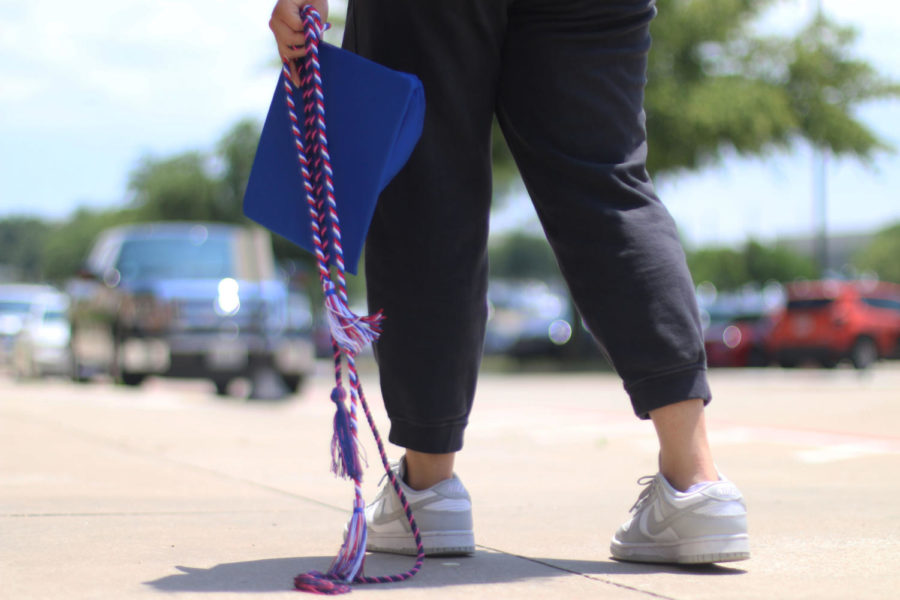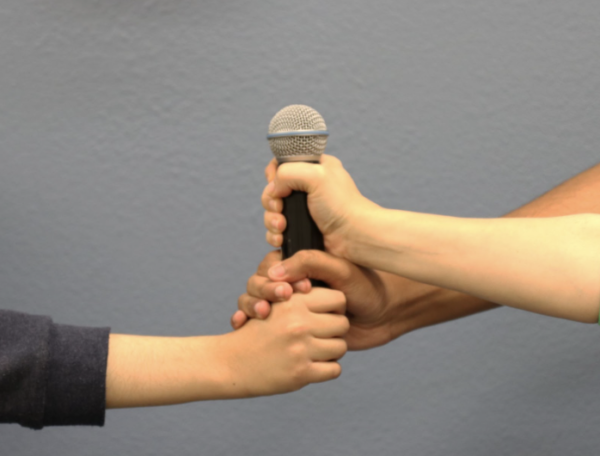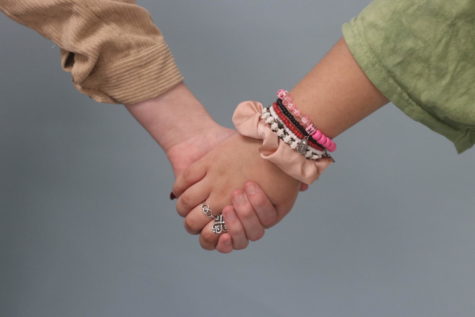Staff Editorial: Growing up has changed for the worse
Growing up isn’t about having a fun childhood that leads to slowly learning life lessons anymore – it’s now about worrying if you look “good enough” or not knowing if you’ll make it home from school each day.
Growing up has changed. What used to be a process of slowly learning life lessons has become constant worry about looking “good enough” and not knowing if your day at school might be your last. Growing up has always been something kids dream of until the moment they get to that point. As a child, the biggest problem in your life is deciding which game to play or show to watch. After growing up, that changes.
As people grow, those problems become what they should wear to school so they aren’t judged or what snack they should eat based on calories so they can maintain an “ideal” body image. Simple decisions begin to have double-sided meanings, and that’s what growing up is about. This year’s graduating class has faced growing, concerning challenges that previous generations did not face. Increased school violence, COVID-19 and the rise of social media have shifted the definition of what it means to ‘grow up,’ and though rewriting that definition is a long term goal, there are short term victories we can fit in now.
Social media has influenced the term “growing up” more than most think. We went from using social media as a platform to keep up with current events and showcase key personal memories to using it as a way of showing off and narrating false perceptions for others’ eyes. Social media is a key factor in setting standards and, as we grow up, we get blinded by it more and more.
Of course, a multi-year pandemic hitting in the midst of your formative years has an impact as well. During the two-and-a-half year long COVID-19 pandemic, more than 2,200 adolescents fatally overdosed; 96% of these were teens from the ages 15-19. During this time, opioid overdoses became a global crisis and studies have shown that there is a connection between mental disorders and overdoses. The increase in substance and mental health issues often stems from lack of resources which many teens face as so many have the ideology that having a mental disorder is “embarrassing” or makes you “weak.” If these statistics don’t shock you enough, imagine how teenagers feel seeing their peers as statistics
Mental illnesses aren’t just tied to COVID-19 and overdoses as the increase of violence in schools can make every day a mental strain. Since the Columbine Massacre in 1999, at least 185 children, teachers and faculty members have been killed by gun violence in American schools. That’s the reality of our world and the reality of growing up. Regardless of those harmed or unharmed physically in these shootings, several studies have shown that these incidents have detrimental effects on the youth’s mental health. Research has also shown a higher number of antidepressants are being used by those who have been exposed to a school shooting. At one point, “growing up” was about going from diapers to pull ups or from ordering food from the kid’s menu to a normal menu; now, it’s about wondering if you’ll even make it that far.
Some parts about growing up are still vital and things we all go through. The best part about growing up is the relationships people build because they help us navigate through life. Growing up has many ups and downs and, even though it isn’t exactly this awesome thing we all love about life, it brings us life lessons, maturity and even unity.
No one should have to grow up alone — it’s a process and a journey that should be shared. As a society, we can change the meaning of growing up for the better. For starters, reposting something that brings awareness on social media often goes a lot further than we initially think or even reaching out to people. So many mental illnesses are worsened by isolation, but we, as humans, can change that. Growing up may not always be fun or easy, but it’s important – it’s a part of life.

Junior Peyton Kuschmeider is the multimedia editor and this is her second year on staff. In her free time, she loves to take photos, read, write, go on...













